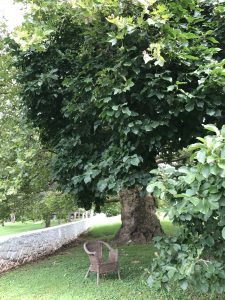 Psalm 30:6-7, 11-12
Psalm 30:6-7, 11-12
When I was secure, I said, “I will never be shaken.” Lord, when you showed your favor, you made me stand like a strong mountain; when you hid your face, I was terrified… You turned my lament into dancing; you removed my sackcloth and clothed me with gladness, so that I can sing to you and not be silent. Lord my God, I will praise you forever (CSB).
People tend to think they are prisoners to their emotions or moods. This might be true of those who do not know the Lord, but the people who are in Christ have been called to freedom. It is for freedom that Christ has set us free. Stand firm, then, and do not let yourselves be burdened again by a yoke of slavery (Galatians 5:1). We must draw our self-image from what we are in Christ, and not blindly accept the opinions of our culture. We do not have to be subject to our moods. The good news is that God acts to bring his people into a correct emotional condition.
The Lord is not passive about us! We tend to view ourselves as the one who initiates communication and sharing of life with God. That is a very proud, human-exalting view! Instead, God does work directly and indirectly to relate with us. Since we belong to the Lord, he is not satisfied to let us go our own way. He wants us to walk in his way and works to keep us in his way by his word and the Spirit (cf. Colossians 2:6-7; Romans 15:13; Galatians 5:16-26). God’s action in our lives may occur over a long or short time span. Study Psalm 32 for one example.
What should we learn?
A true believer can endure great turmoil due to his or her incorrect thinking. Don’t blame someone else for your joylessness or whatever. “No doubt the trouble is with you.”
Our moods should be viewed as indicators of our spiritual condition. But we in turn must test the readings of those indicators by the standard of the Scriptures and good common sense (cf. Lloyd-Jones, Spiritual Depression, pp. 14-19.) Ask yourself, “Why are you downcast, O my soul?” (Read Psalms 42 and 43.) You need to examine yourself. For example, “Do I feel secure because my heavenly Father cares for me or because ‘everything is going my way’?”
You should check various feeling indicators:
- Coldness to spiritual truth
- Faultfinding in others
- Anger about situations
- Indifference to needs of others
- Fear of the future
- Jealousy about another’s prosperity
- Bitterness about anything or anyone at any time
Warning! Don’t become more involved in looking at your spiritual vital signs than in looking at the Lord Jesus Christ! As John Reisinger said many times, “Take one good look at your heart, and then take ten thousand looks at Jesus Christ!”
Here is an important point, worthy of much emphasis. The way of establishing sound emotional patterns is by focusing on one’s relationship with the Lord, not by seeking an emotional lift. Listen to the words of a man who suffered much for the Lord Jesus, and who surely endured many down times from his afflictions. What is more, I consider everything a loss because of the surpassing worth of knowing Christ Jesus my Lord (Philippians 3:8a NIV).
Grace and peace, David

 Acts 10:37-38
Acts 10:37-38 Ruth 4:9-12
Ruth 4:9-12 Ruth 3:5-9
Ruth 3:5-9 Ruth 3:1-2
Ruth 3:1-2 Ruth 3:1-2
Ruth 3:1-2
